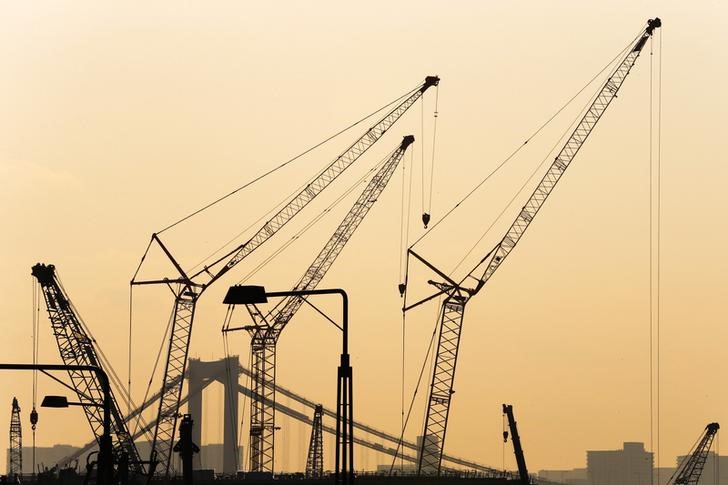By Tetsushi Kajimoto and Leika Kihara
TOKYO (Reuters) - Japan's economy expanded more than initially expected in January-March as companies ramped up capital investment, underscoring the central bank's view that recovery from last year's recession is gaining momentum.
The economy grew an annualised 3.9 percent in the first three months of this year, Cabinet Office data showed on Monday, handily beating a preliminary estimate of a 2.4 percent gain, and topping a median market estimate for 2.7 percent growth.
"This is a pretty positive figure and shows the recovery is picking up pace," said Takeshi Minami, chief economist at Norinchukin Research Institute.
"Non-manufacturers are boosting spending on expectations that private consumption will recover, so this should serve as a key driver of growth," he said.
Capital spending rose 2.7 percent from the previous quarter, much more than a preliminary estimate of 0.4 percent growth and bigger than a 2.3 percent expansion projected in a Reuters poll.
The data is welcome news for the government and the Bank of Japan, which are hoping that expectations of a steady economic recovery will spur companies and households to boost spending.
A pick-up in capital expenditure is key for the success of premier Shinzo Abe's stimulus policies, which aim to reflate the economy out of stagnation by changing companies' perception that deflation will persist.
"The Japanese economy is returning to growth orbit," Abe's spokesman Yasuhisa Kawamura told reporters on the sidelines of a summit of Group of Seven leaders on Sunday.
The upgrade reflected a Ministry of Finance survey issued last week, which showed corporate capital spending grew in January-March at the fastest pace in a year.
The MOF survey, which is used to calculate revised GDP data, showed a notable increase in non-manufacturers' spending. Retailers and wholesalers are building new distribution centres, while hotels and theme parks are investing in renovation to draw back customers, analysts say.

"Non-manufacturers may also be investing more on automation to meet a shortage of labour," noted Norinchukin's Minami.